Post Processing Software, Lightroom, Photoshop, etc
Jan 2, 2017 17:10:09 #
Jan 2, 2017 17:23:13 #
You can do color, contrast, exposure, and cropping adjustments with many different software applications. I do a good bit of re-touching on people images, and find that I frequently need to go beyond what Lightroom or ACR alone can do for me. A couple of examples follow.
The first is a re-touch of a scanned old photo. Much of this could have been done in Lightroom.
The second, from a prom photo series, had a pose that put fleshly areas of the body in non-flattering binds. It also had a section of bra showing above the gown. Both are relatively easy repairs in PS CC.
Since I showed the "before" image on example 2 (and the subject of the image is not me), the face was intentionally blurred.
To help answer what your time investment for using the software may be, I've been using PS extensively for five years. I improve each year, but I am still learning.
The first is a re-touch of a scanned old photo. Much of this could have been done in Lightroom.
The second, from a prom photo series, had a pose that put fleshly areas of the body in non-flattering binds. It also had a section of bra showing above the gown. Both are relatively easy repairs in PS CC.
Since I showed the "before" image on example 2 (and the subject of the image is not me), the face was intentionally blurred.
To help answer what your time investment for using the software may be, I've been using PS extensively for five years. I improve each year, but I am still learning.
Jan 2, 2017 17:29:35 #
Great examples, I think I would see myself using it for similar applications.
Jan 2, 2017 17:43:29 #
whitewolfowner wrote:
Finally, someone who can show a decent example of post processing.
Thank you very much.
Jan 2, 2017 17:44:08 #
Jan 2, 2017 18:27:17 #
Most of the photography community are really caught up in Photoshop. Make no mistake it IS the best you can get. However, if you are only interested in bringing out the best in your photos and not altering what you are shooting, I'd recommend Corel Paint Shop Pro. I've been using it for a long time (since X2 came out). It's a powerful tool with many of the same features as Photoshop but only about 1/3 the cost. Corel offers a 30 day trial on their products so it might be worth looking in to.
Jan 2, 2017 18:40:31 #
amfoto1
Loc: San Jose, Calif. USA
Safecracker349 wrote:
...I am aware that much more can be done in photos... (show quote)
Based on your above comments, I highly recommend Adobe Photoshop ELEMENTS 15... not the more advanced Photoshop CC/Lightroom CC subscription, which might at first seem tempting.
Elements is more user-friendly, especially for beginners. It has built in "beginner", "intermediate" and "expert" modes, which you can choose and switch among as you see fit, to have more or less support. There is no such option in Photoshop or Lightroom. They are both basically "expert" mode all the time! Photoshop, in particular, requires pretty extensive effort to learn to use really well. Figure on about a year's worth of college level classes and textbooks, to become truly proficient with PS. It's not nearly so involved with LR, but still takes some effort to learn to get the most out of it.
Plus, Elements is pretty much a stand-alone software, able to do many of the major functions of both PS and LR. PS and LR are not really "stand alone"... they are designed to complement each other. LR is a cataloging, sorting, keyword, batch RAW conversion software with light, mostly only global image editing and adjustment capabilities. It's designed to work with a very high volume of images, rapidly and with only minor tweaks to individual images. PS is sort of the opposite... a very intensive image editor that can work down to the pixel level for very targeted editing and corrections, with relatively minimal cataloging and sorting capabilities, primarily intended for finishing work on individual images. While some people find either LR or PS does all they need it to do, they are more the exception than the rule (or just haven't really learned to use those programs very fully).
Finally, Elements is available for outright purchase, currently version 15 costing about $70 for a perpetually licensed copy. Lightroom 6 is still available that way, too, but costs roughly twice as much. Or, you can subscribe to the Photoshop CC/Lightroom CC package for about $10 a month (pre-paying for a year's worth).
Elements is updated about once a year. But unless you upgrade your camera and it's not supported by a current version of the software... or really, really need some new feature included in a future version... you can continue to use it as long as you like.
Elements is an "8-bit" software. This means you cannot save any sort of 16-bit file formats with it. This largely limits you to JPEGs and GIFs, for example. You won't be able to save TIFFs or similar.
However, the vast majority of common uses of images call for JPEGs. They are all that's needed for many printing processes, whether at home or via a printing service. In fact, many print services reject anything other than JPEGs. And JPEGs are almost universally the type of image file you'd need for online display or sharing.
Elements is fully capable of making RAW conversions, and that might be someplace you'd see the biggest benefit in your images. When you shoot JPEGs with your camera, it's basically doing an immediate RAW conversion in-camera, then saving the result. All digital cameras shoot RAW initially, all the time. When you choose JPEG format, you are telling the camera to make this conversion, based upon the settings in the camera itself. This can be fine, so long as those settings are all ideal. But if they aren't, "fixing" a JPEG later on is much more difficult. That's because a lot of the original data that was captured has simply been thrown away, after the JPEG was made. But if you still have the original RAW, you have much more latitude to "fix" things in post processing, and can do so with more accuracy while viewing the images on your large computer screen.
Which brings me to another point. If you are going to be doing post-processing, do yourself a big favor and buy a calibration device and software. From the box, most computer monitors are way too bright for photo editing and don't render color all that accurately. This actually causes you to misadjust your images in post-processing. For example, the too-bright screen will cause users to adjust the image too dark... so it's common to see "my prints are too dark" complaints from people who haven't calibrated their computer monitors. A calibration device and the software used with it... such as a Datacolor Spyder, Pantone Huey, or X-Rite ColorMunki (I think the latter two might have merged).... is a good investment if you do very much printing. It can pay for itself in savings of wasted ink and paper, if you do very much printing.
Once set up, there's a lot that can be done in post-processing. If needed, especially when working from RAW you can adjust color balance and exposure levels. You can correct inherent lens distortions, fix chromatic aberrations, dial out any pincushion or barrel distortions lenses might cause, straighten horizons and crop to a better size/aspect ratio for a particular image. I often also balance overly bright skies with fore- and middle-ground exposures, in ways that are much better than was ever possible with film.
The ethics of "Photoshopping" an image have been hashed over for as long as Photoshop has been around... probably even longer, before we knew to call it that.
Fact is, EVERY image benefits from some post-processing. And, EVERY image ever shot on film was post-processed (read Ansel Adams' books). Now with digital much more is possible, much faster and with better end results when it's done right. And, if you are saving your digital images as JPEGs in your camera, EVERY one of those is actually being post-processed, too, by the camera itself. Another fact, cameras and lenses simply cannot capture the world as we see it with our eyes... but some post-processing can fix that. And, cameras and lenses often capture little details that we didn't notice in the heat of the moment when shooting, which may or may not "add" to the image in any way.
There are a lot of things you can and should do, that don't get into the "ethics" at all. It's one thing when Photoshop is used to shorten the length of a surfboard so an image will fit onto the cover of a magazine or to add a famous person to a group, or make a model look slimmer and more beautiful than she really is.... it's another thing to simply correct a slightly tilted images, to sharpen some things or blur down others to draw attention to certain parts of a shot, to adjust contrast and color saturation to better reflect what you saw and remember as opposed to what the camera and lens are able to capture. It's one thing to Photoshop a "news" image or violate "truth in advertising".... another thing to work on enhancing a fine art image or family memento.
I've removed a pile or two of horse poop from foregrounds... deleted telephone poles growing out of peoples' heads, as well as wires that appeared to pass in one ear and out the other... even transferred "open" eyes from one shot to another, otherwise much nicer shot where the subject just happened to blink at precisely the wrong instant... fixed a few "wardrobe malfunctions".... removed a fly or two... even expanded a background so that a pair of portraits better complemented each other... changed the color of or deleted distracting background elements... added blur to backgrounds... sharpened primary subjects... retouched away a wild hair or two... and more. I recall a portrait of a young lady who was wearing eyeglasses, where a reflection obscured one of her eyes... I was able to fix that by copying her other eye, "flopping", slightly tweaking and pasting it.
The ethics police didn't come calling, I wasn't struck by lightning and my Priest tells me in the confessional that I won't be be condemned to an eternity in Hell for doing these things.
If you want to give it a try, you can download a 30-day trial of Elements from the Adobe website. That's probably enough to explore it a little. There are also 30-day trials of Photoshop and Lightroom available, but it would be rather hard to try out Lightroom very thoroughly... and you won't have even scratched the surface with Photoshop... in only a month.
Jan 2, 2017 19:33:37 #
amfoto1
Loc: San Jose, Calif. USA
Here are a couple before and after examples....
This first was a test of lens and filter, under particularly challenging lighting conditions.
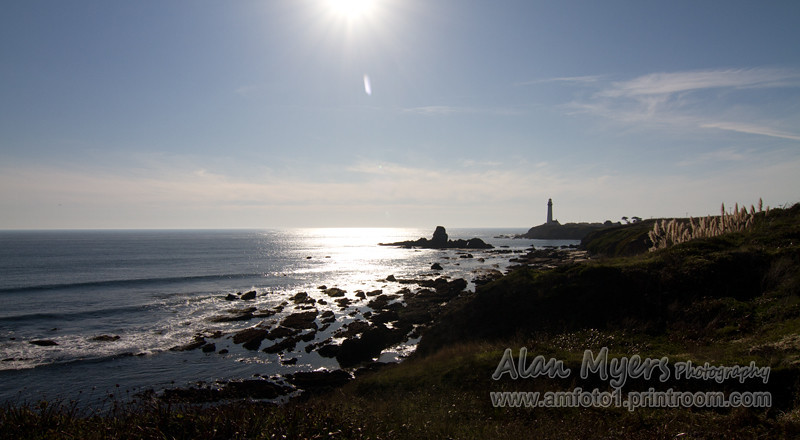
The above is under-exposed, has overall veiling flare that reduced contrast and color saturation and has several ghost flare artifacts. Here is how that same image looks after some post-processing, which is much more accurate representation of what I saw with my eyes that afternoon....
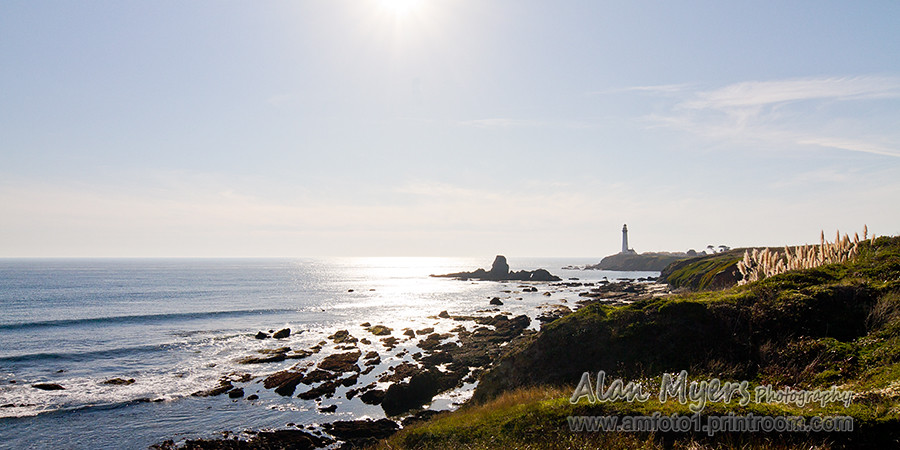
Here's another example. This is a common, tricky "backlit" situation where bright outdoor sunlight and indoor shade significantly exceed the dynamic range possible with any camera. To correct this with film would have been impossible, but with digital it can be done. I "double processed" the original RAW image in post-processing... in one I adjusted exposure and color temperature/color tint for the indoor, shaded primary subject... and then adjusted the exposure of the other to "recover" some of the background detail and render bits color more accurately with color temp/tint tweaks. Then using those two versions of the image, I made the third and final composite image which more accurately reflects what I could see with my eyes, utilizing the "correct" portions from each of first two images. Other than using fill flash (which isn't permitted in this case), there is no other way to accomplish this.
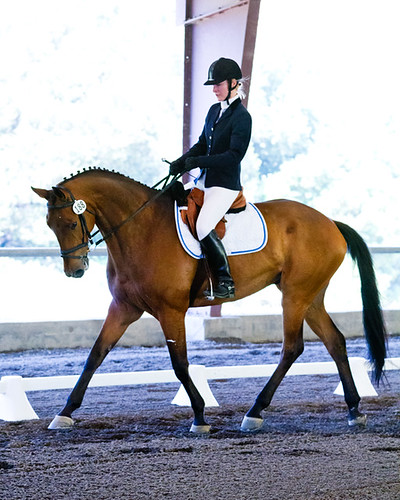
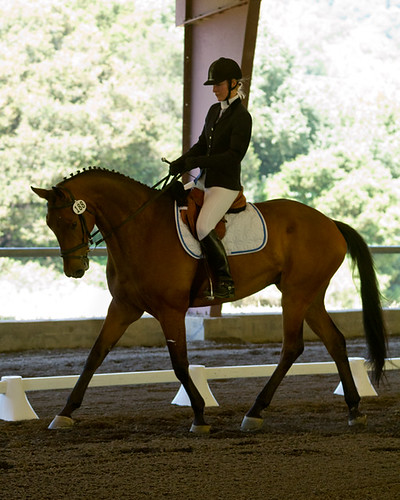
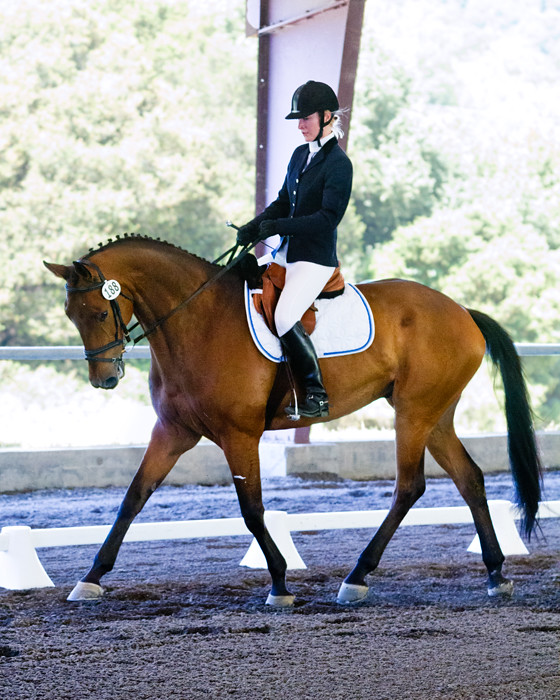
Note: The final image above is deliberately slightly over-saturated, because it was going to be printed using a process that I knew tended to desaturate images.
I don't have any ethical concerns or qualms about "Photoshopping" either of the above images. In both cases, post-processing was done to render a more accurate image... better matching the real world as I and other people saw it with our eyes. The vast majority of the time, this is my end goal in post-processing... a natural, realistic image.
Some people use post-processing techniques to produce other-worldly-looking HDR images. Other folks "change reality" in other ways. I have no problem with either of those uses of post-processing either. I've done some of it myself. The image below is a composite of two different ones. In fact, one was shot on film with fill flash and a 28-135mm lens and the other was shot digitally with a 500mm lens and 2X teleconverter. It would be impossible to take this photograph as a single image. But I think the composite is more interesting and tells a better "story"... and some people seem to agree because I've sold a number of prints of this image (always clearly labelled as a montage made from two separate images).
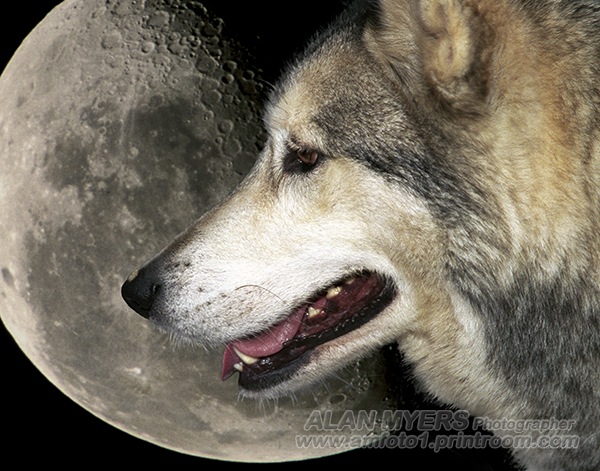
This first was a test of lens and filter, under particularly challenging lighting conditions.

The above is under-exposed, has overall veiling flare that reduced contrast and color saturation and has several ghost flare artifacts. Here is how that same image looks after some post-processing, which is much more accurate representation of what I saw with my eyes that afternoon....

Here's another example. This is a common, tricky "backlit" situation where bright outdoor sunlight and indoor shade significantly exceed the dynamic range possible with any camera. To correct this with film would have been impossible, but with digital it can be done. I "double processed" the original RAW image in post-processing... in one I adjusted exposure and color temperature/color tint for the indoor, shaded primary subject... and then adjusted the exposure of the other to "recover" some of the background detail and render bits color more accurately with color temp/tint tweaks. Then using those two versions of the image, I made the third and final composite image which more accurately reflects what I could see with my eyes, utilizing the "correct" portions from each of first two images. Other than using fill flash (which isn't permitted in this case), there is no other way to accomplish this.



Note: The final image above is deliberately slightly over-saturated, because it was going to be printed using a process that I knew tended to desaturate images.
I don't have any ethical concerns or qualms about "Photoshopping" either of the above images. In both cases, post-processing was done to render a more accurate image... better matching the real world as I and other people saw it with our eyes. The vast majority of the time, this is my end goal in post-processing... a natural, realistic image.
Some people use post-processing techniques to produce other-worldly-looking HDR images. Other folks "change reality" in other ways. I have no problem with either of those uses of post-processing either. I've done some of it myself. The image below is a composite of two different ones. In fact, one was shot on film with fill flash and a 28-135mm lens and the other was shot digitally with a 500mm lens and 2X teleconverter. It would be impossible to take this photograph as a single image. But I think the composite is more interesting and tells a better "story"... and some people seem to agree because I've sold a number of prints of this image (always clearly labelled as a montage made from two separate images).

Jan 2, 2017 21:22:11 #
Mac wrote:
Look at Macphun. Their programs are for Macs only. I have the Creative Kit, Aurora HDR and Luminar. I use Luminar the most, but the others are nice to have. You can use them as extensions in Photos, or as a stand alone. I suggest starting with Luminar, and adding the others if you think you need them. Macphun has many well made tutorials on their web site.



Jan 3, 2017 02:51:04 #
Lightroom 6 is available for purchase from B & H for $142.00. You own it out right and no monthly fee. It won't receive updates but will take many moons to be out dated and all you need to do is own it for a bout a year to get your money out of it compared to the subscription. Yes, $9.99 a month but they add taxes to it, so when you are done figure $11 a month. The other advantage is that you will always have it and when the cloud is down or they screw the software up on you (happens every once in a while) and you can't use it (see how many people's gets shut down when they bring in the upgrades and can takes days or weeks to fix), you have the owned copy to fall back on.
Jan 3, 2017 05:55:31 #
Check out the latest edition of Corel PaintShop Pro. Easy to use and inexpensive.
Jan 3, 2017 05:58:33 #
Both the Adobe site and youtube are loaded with tutorials. Adobe offers Photoshop CC 2017 and Lightroom at a $9.98 per month subscription price which includes perpetual upgrades at no extra cost.
Jan 3, 2017 09:36:15 #
Jan 3, 2017 14:27:17 #
Bram boy
Loc: Vancouver Island B.C. Canada
A lot of people are against this they mistakenly call this unpure and altering the
Picture . Well I disagree ,it's no different than a artist trying to get the best out of his creation , your just bringing out the high lights that are there allready . Your not adding a bunch of stuff that's not there like more trees and objects , it's the same scene only with more ooomph to it , look at some of the eagle shots a round
They would not look as good with out all the rest of stuff that's in the photo brought out where you can comprehend it more easley .
Picture . Well I disagree ,it's no different than a artist trying to get the best out of his creation , your just bringing out the high lights that are there allready . Your not adding a bunch of stuff that's not there like more trees and objects , it's the same scene only with more ooomph to it , look at some of the eagle shots a round
They would not look as good with out all the rest of stuff that's in the photo brought out where you can comprehend it more easley .
If you want to reply, then register here. Registration is free and your account is created instantly, so you can post right away.









